3.pdf



Broadcaster Press 03
November 20, 2012 www.broadcasteronline.com
Burrow lectures on Eugenics
and the Nazi Conscience
Spotlight
On
By Travis Gulbrandson
travis.gulbrandson@plaintalk.net
One of the reasons the
Nazis were so effective in
convincing German
citizens to be complicit in
their crimes was because
they portrayed
participation in them as a
kind of moral obligation.
These efforts helped the
people doing the crimes
“maintain a moral center
while doing something
profoundly immoral,” said
David Burrow, Ph.D.,
associate professor of
history at the University of
South Dakota.
Perhaps the most
shocking aspect of this is
that this end was not
entirely achieved through
coercion, he said.
“The Nazi conscience
suggests some of the ways
in which ordinary people
were complicit in the Nazi
state, which is a disturbing
thought which most people
don’t want to think about,”
Burrow said. “We don’t
want to think that …
people would willingly be
complicit.”
Burrow discussed this
issue in the presentation,
“Eugenics and the Nazi
Conscience,” which he gave
three times last week in
I.D. Weeks Library.
The lecture used the
concept of the “Nazi
conscience” as described in
the work of Claudia
Koontz of Duke University,
which illustrates how the
Nazis worked to convince
ordinary Germans that the
regime’s ideas on eugenics
were not only ethical, but
that to follow them would
be a moral obligation.
The idea of eugenics
was not created by the
Nazis, Burrow said. It was
an international scientific
movement started in the
19th century, and the term
itself was coined by Francis
Galton.
“The basic idea of
eugenics was that you
wanted people that you
thought were genetically
healthy to thrive and have
more children, and the
people that were not
genetically healthy, you
would not want them to
reproduce,” Burrow said.
Galton was thinking
more in terms of social
class – it was the Nazis who
added the component of
race, Burrow said.
“Galton’s idea was to try
and come up with a way …
to encourage the right
people to have children,
and discourage the wrong
people,” he said.
Often referred to as
“social Darwinism,” the
concept takes only the
competitive aspect of
Darwinism and nothing
else, Burrow said.
“(Charles Darwin’s)
‘The Origin of Species’ is
about how bird species in
the Galapagos adapt and
fill a niche,” Burrow said.
“But, the bird species with
more adaptive beaks don’t
go out and eradicate the
other birds.”
The Nazis looked at it
through their own racial
theories – the idea that
population was divided
into competing races
which were defined by
genetic stock and could not
be changed.
While Burrow said this
concept doesn’t stand up as
science, the Nazis used it as
the basis for their crimes,
and used it in the
communications to
ordinary Germans.
The Germans were
encouraged to think of
people not as people, but
as categories – the sick, the
unwell, the asocial, the
Jude.
“It’s easier to think,
‘Well, we’re just going to
euthanize the sick,’ rather
than, ‘We’re going to
euthanize Hans,’” Burrow
said.
During his presentation,
Burrow shared posters,
booklets and magazines
designed to encourage
Germans to think that
helping the “weak” or
“disadvantaged” is an
unethical practice.
One poster showed a
picture of a mentally
challenged young woman
and the amount of money
that would be “wasted” if
the state were to provide
for her care.
“You were supposed to
look at this photograph
and think, ‘She would be
better off dead,’ and not, ‘I
hope someone’s taking care
of her. I hope she’s living a
pain-free and pleasant
existence,’” Burrow said.
“You’re supposed to think
her life is hopeless. It has
no value.”
While it seems hard for
many to believe, these
campaigns were widely
successful, he said.
“We can’t know what
people were thinking,”
Burrow said. “Obviously,
the Nazi conscience was
fortunately not completely
enacted, but something is
clearly at work.”
It’s a different view than
that of an “I say, ‘Jump,’
you say, ‘How high?’”
mentality, he said.
The lecture was made
possible by a grant from
the South Dakota
Humanities Council, and
ran in conjunction with
“Deadly Medicine:
Creating the Master Race,”
a traveling exhibit from the
United States Holocaust
Memorial Museum now on
display at the library.
Tell them
you saw it
in the
Broadcaster!
Vermillion, SD
624-4429
BRADY CHRISTMAS TREE FARM
OPENING — FRIDAY, NOV. 23RD • 9 AM
Regular Hours: Weekdays 1-5:30, Sat. & Sun. 9-5:30
Choose and Cut Your Tree
• Balsam and Fraser Fir
• Black Hills & Colorado Spruce
• Scotch & White Pine
• We Sell The World’s Greatest
LOCATED 4 MILES EAST OF YANKTON, SD
ON HIGHWAY 50 TURN SOUTH AT OUR SIGN • 605-665-4726 Tree Stand





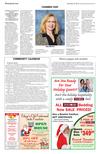
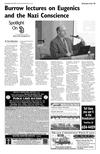
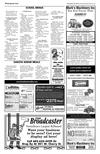
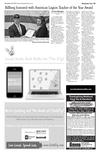
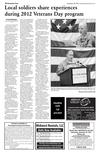
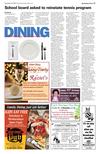
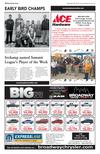
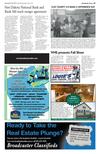
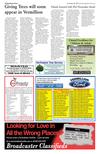
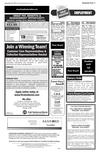
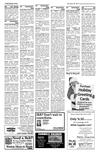

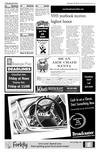


 Previous Page
Previous Page






